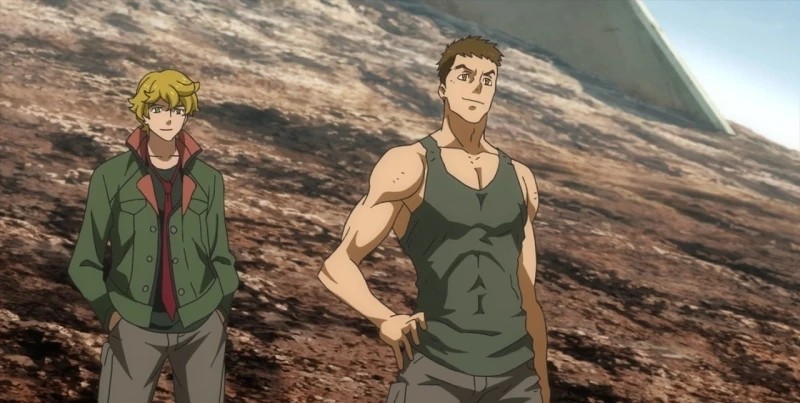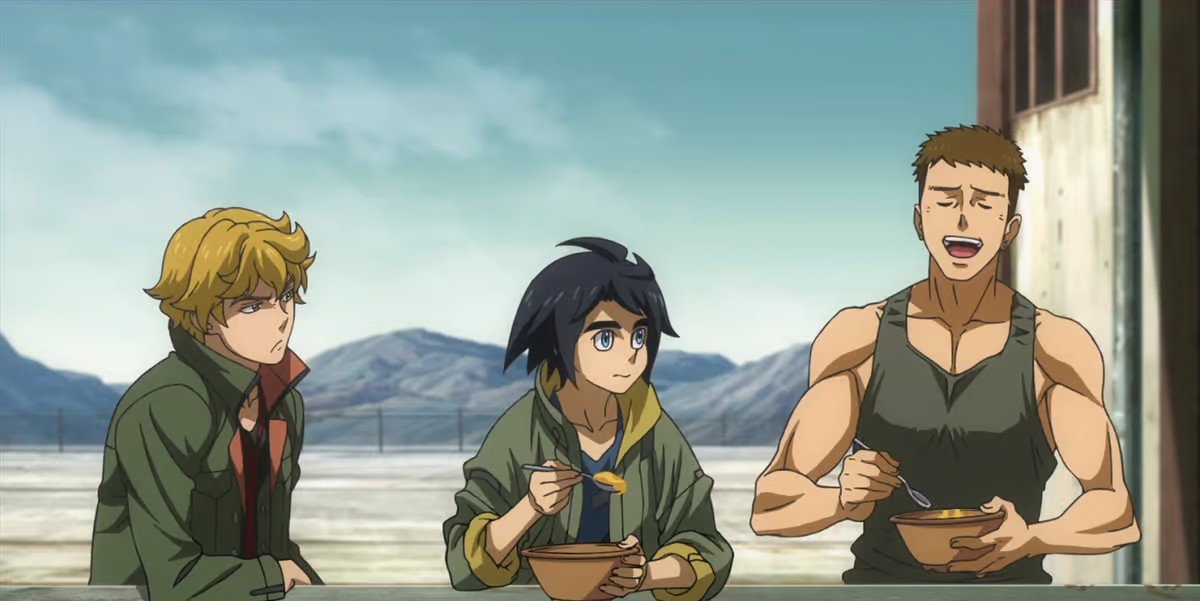The Gundam franchise has thoroughly explored the complexities of war, morality, and human decisions. Through its various series, characters are caught in a whirlwind of violence, conflicting loyalties, and existential dilemmas that raise profound questions about human nature and its relationship with conflict. In this article, we will reflect on how Gundam addresses these themes, with a special focus on the influence of philosophical thinkers like Immanuel Kant and Friedrich Nietzsche in interpreting war and morality.
War as a Reflection of Human Nature
In the Gundam universe, war is not simply a necessary evil or an isolated event—it is a reflection of the tensions inherent in human nature. From its early installments, the series has shown how military conflicts arise from the interaction of power desire, survival, fear, and individual aspirations. However, what sets Gundam apart from other science fiction franchises is its treatment of morality within this war-torn context.
War in Gundam is not black and white. Often, the main characters are part of both sides of a conflict, and their internal struggles reflect the difficulties they face in trying to reconcile their personal values with the demands of a warring world. The series shows us that morality is flexible, and the line between good and evil becomes blurry when caught in a war machine. This approach questions whether war is truly a consequence of human nature or merely a social construct derived from the struggle for power.
Immanuel Kant and Morality in War
Immanuel Kant, the 18th-century German philosopher, is known for his ethical theory of the categorical imperative, which states that moral actions are those that can be universalized, meaning actions that, if everyone performed them, would not lead to chaos. For Kant, morality is tied to reason and individual autonomy. This principle recurs in the characters of Gundam, especially those who fight for high principles and values.
For example, Amuro Ray, the protagonist of the original Mobile Suit Gundam, is a young man who, in many ways, acts according to a Kantian morality. Although he is forced to fight, he does so with the desire to protect the innocent and avoid unnecessary violence. In his struggle, Amuro constantly reflects on his decisions and seeks ways to act in accordance with what he considers right, despite the horrors of war.
However, the series also presents characters who adopt a more pragmatic or utilitarian morality, such as Char Aznable. Char, despite his intelligence and charisma, follows a path that justifies violence and manipulation to achieve his goals. In contrast to Kant's view of morality, Char’s stance suggests that, in a context of war, morality can be flexible, and the means may be justified by the ends.
The moral dilemma in Gundam is not easily resolved, and the series asks whether it is really possible to act morally during wartime. Is war an inevitable consequence of human nature, as some interpretations of Kant suggest, seeking peace but unable to find it due to conflicting human actions?
Friedrich Nietzsche and War as the Will to Power
While Kant offered a moralistic and rationalist view of human nature, Friedrich Nietzsche, the 19th-century German philosopher, approached the concept of war from a completely different perspective. Nietzsche believed that war and conflict were not only inevitable but necessary for human growth and transcendence. In his work Thus Spoke Zarathustra, Nietzsche introduces the idea of the will to power, a concept suggesting that the fundamental drive of human beings is the constant struggle to expand their power, which, in his view, can be both a destructive and creative force.
This approach is clearly seen in the antagonists of Gundam, such as Zeon Zum Deikun or Haman Karn, who view war not only as a tool for gaining political power but as a means to create a new order, one that redefines humanity itself. Nietzsche’s vision of war as a manifestation of the will to power is integral to many of the major conflicts in Gundam, where characters fight not only for survival but for something deeper: control, dominance, and the transformation of society and humanity.

Thus, Gundam highlights how, in times of war, the deepest human passions—ambition, hatred, resentment—are channeled into the struggle, transforming conflict into a force that, while destructive, can also be seen as an expression of the struggle for self-affirmation. In this sense, war is not just a consequence of human nature but also a manifestation of the will to power, where individuals and groups try to impose their vision onto others.
War and Morality: The Protagonists’ Dilemma
The moral dilemma each Gundam character faces reflects a constant struggle between these two philosophical perspectives. While some strive to adhere to universal moral principles, others are willing to justify violence and conflict as a means to achieve higher ends.
A clear example of this internal contradiction is Judau Ashta, the protagonist of Mobile Suit Gundam ZZ. Judau is not a pacifist, but he is aware of the tragedies of war. However, throughout the series, Judau faces the reality that, to achieve his goals, he sometimes must engage in armed conflict. This struggle is not only external but internal, as he is forced to question whether his decisions are justifiable under his own moral code.
On the other hand, in Mobile Suit Gundam Wing, Heero Yuy is a clear example of how war can transform even those who initially seek peace. Heero begins his journey with the intention of ending the war, but gradually finds himself trapped in the machinery of the struggle, reflecting how good intentions can crumble under the pressures of conflict.
Is War a Consequence of Human Nature?
While Gundam does not offer a definitive answer to the question of whether war is an inevitable consequence of human nature, the series suggests that war is the result of a combination of factors: the struggle for power, incompatible ideals, and human nature itself, with its virtues and vices. The influence of philosophers like Kant and Nietzsche in the series is clear: war can be seen as a manifestation of universal moral principles or, alternatively, as an expression of human will to power.
In the end, Gundam invites viewers to reflect on the nature of conflict and question whether, as human beings, we are condemned to repeat the mistakes of the past, or if we can find a way to break the cycle of violence and move toward a more peaceful future. War in Gundam is not just a narrative event but a representation of our own internal struggles and the decisions we, as individuals and as a society, constantly face.
Ultimately, Gundam invites us to reflect on the decisions we make in times of conflict and how our own internal struggles mirror the great war dramas. Is war an inevitable consequence of human nature, or can we find alternative paths to peace? We’d love to hear your thoughts. What do you think about the moral dilemmas presented in Gundam? Do you believe the cycle of war is a condemnation of humanity, or is there hope in the capacity for change? Share your ideas with us in the comments, and if you're passionate about these topics, explore more on our blog!


